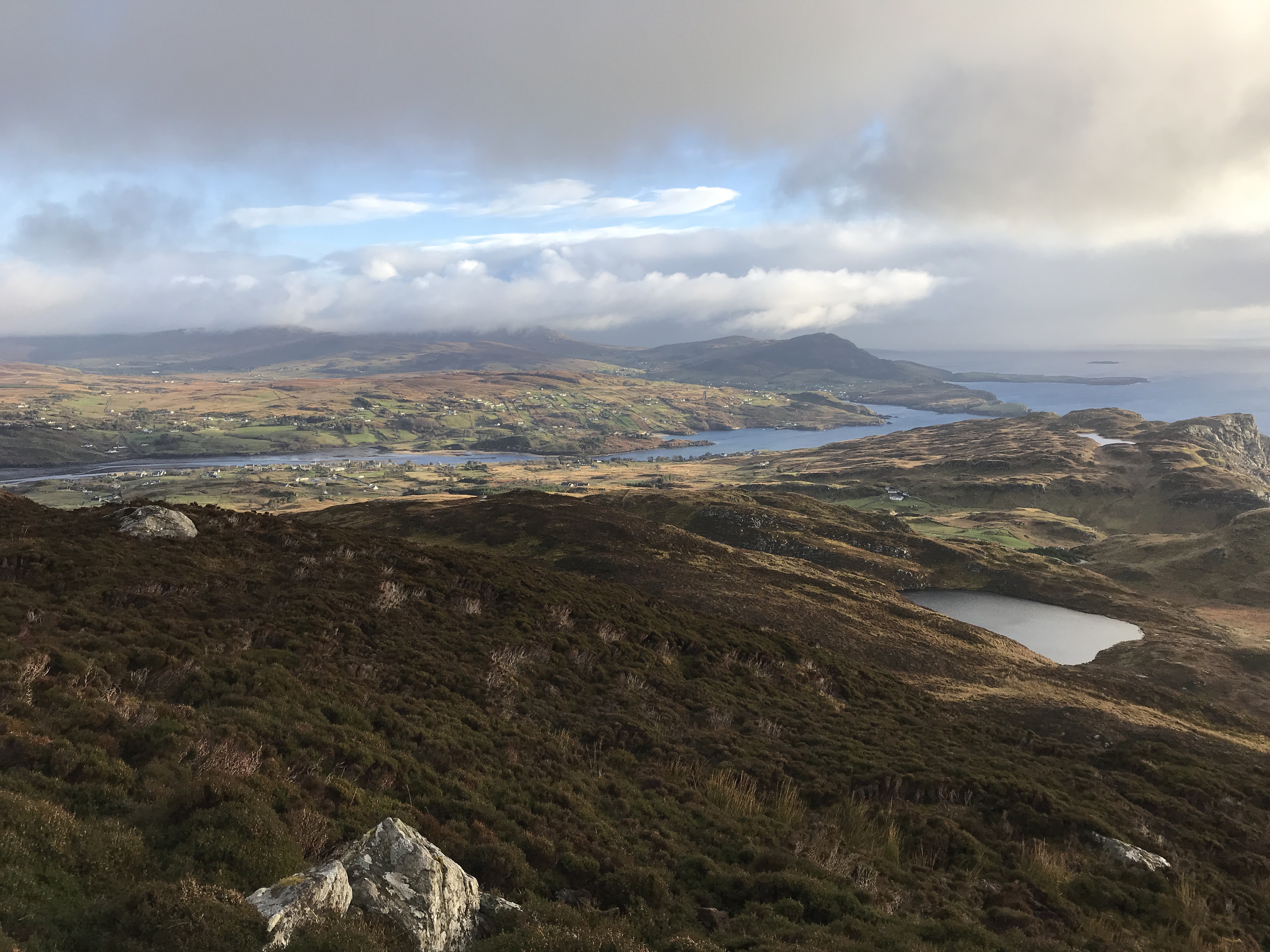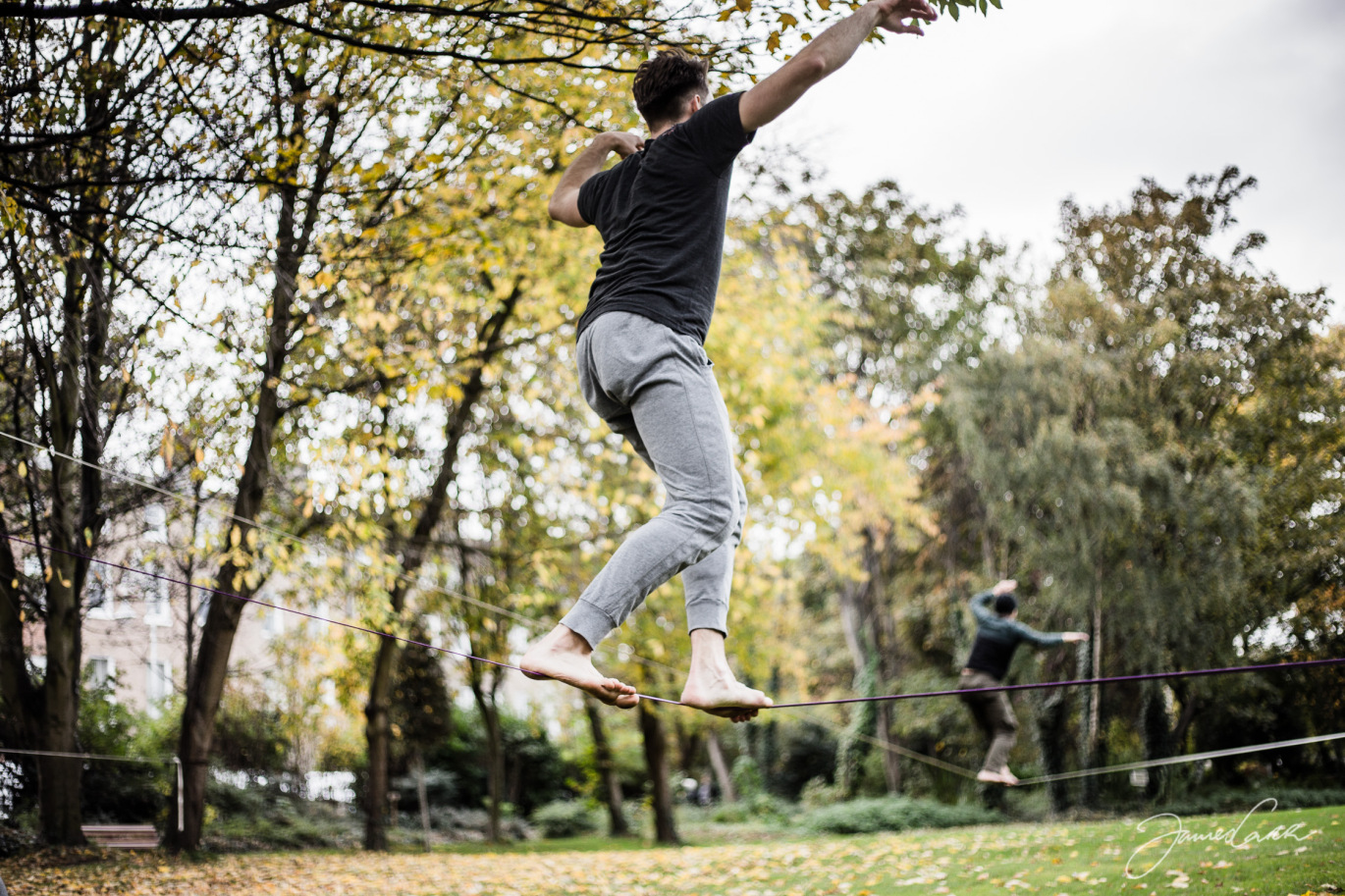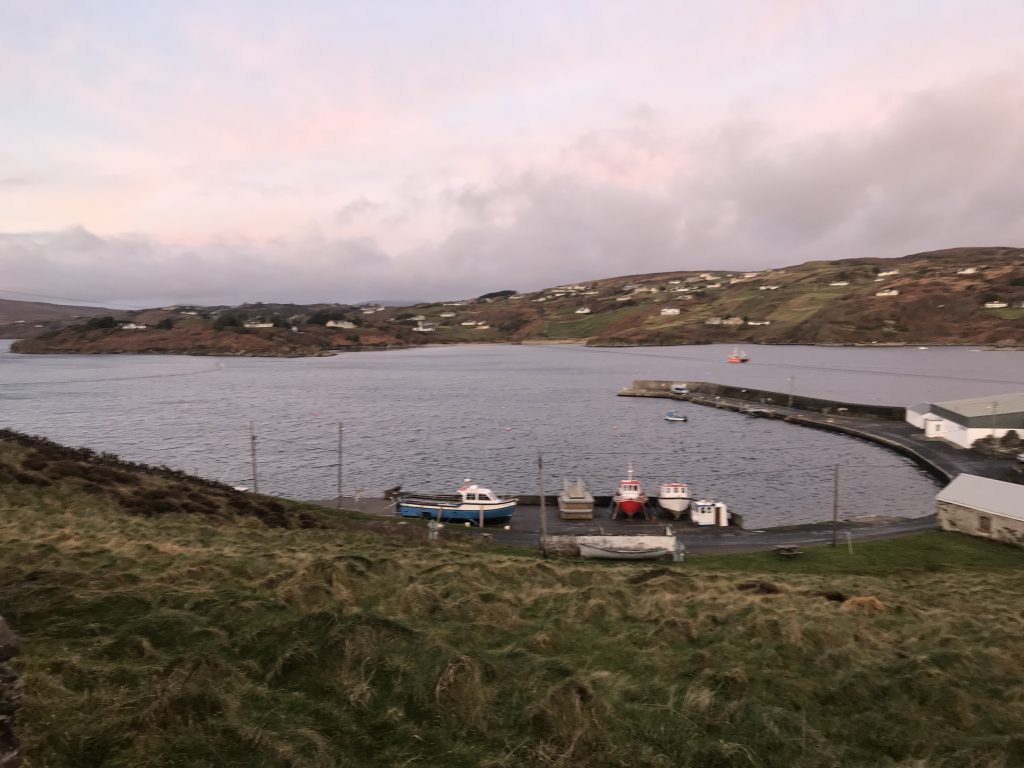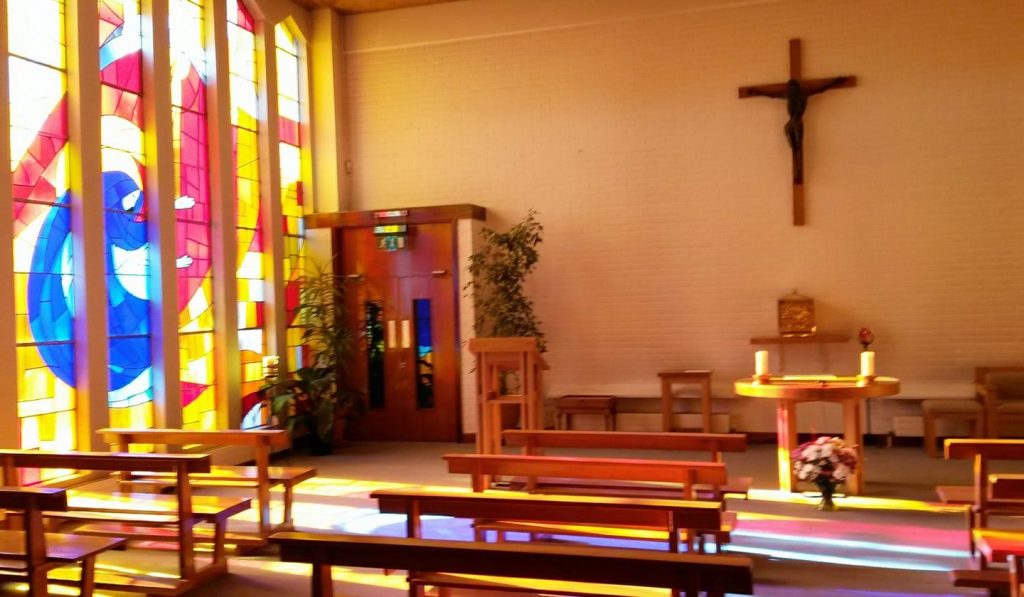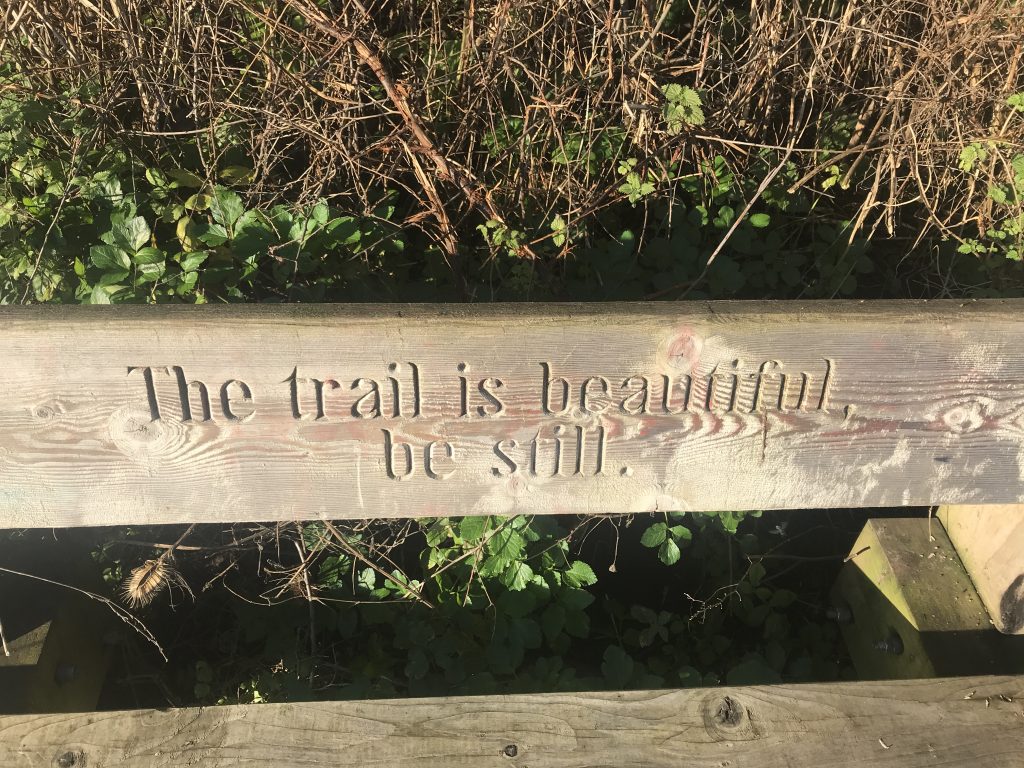“God is too good to believe in”: I scrawled in my very occasional journal at some point in November. It’s a nice thin black journal with a binding that allows it to be put flat on a table so one can write comfortably uncomfortable things. Full of truths and self-deceptions in equal parts, it is. I’ve never known under which category to include the religious writing with which I so often fill its pages.
Someone once told me that I’m preoccupied with religion. Maybe so. Someone also once told me that I don’t think religion is important. Maybe so. There’s a fine line here, a line I don’t feel qualified to draw. Nor are those someones qualified to draw it for me. No straightedge will guide my beliefs to a pat answer. I also remember sitting in Merrion Square Park in Dublin and watching a man walk an actual tightrope and deciding it wasn’t a metaphor. And so it’s not.
—
Talk in the provincial towns of Ireland almost always wends its way to the weather. To the rain. To the lack of sun. To the cold, especially the cold. It’s a different kind of cold here, you know. It’s damp and full of meaning, clearly, because it’s inspired countless writers and dreamers and aesthetes to wax lyrical about it, about how it tamps down the spirit, holds one back, keeps one in. I don’t feel that way, though. No. To me, when the sun is setting and its brilliance is blocked by the pall of clouds that so often hangs, the light is dimmed to a silver-peach-blue that seems to make the countryside pop with ambiguity. What color is it actually? Doesn’t really matter. The fact that there’s color at all betrays a truth: I don’t need to know it to find it beautiful. This country is not as stunning when it’s not raining.
—
As the main accompanist at the church this year, I get to play the piano and organ at church services several times each week. It’s an honor to play my best for people whose companionship I so appreciate. I can look out and see people smiling and praying, like they’re seeing the beatific vision right there, right then. I don’t get it. I wish I could have a face like that: peaceful and calm and preoccupied with thoughts of the Beloved who holds them. I don’t know it, but it’s beautiful.
They are like the woman of Genesis, Hagar, who is discovered by an angel while sitting dejected by a stream. She is promised a son. She rejoices and names God El-roi and says, “Have I really seen God and remained alive after seeing him?” El-roi. The God Who Sees Me. Traditionally, I have stopped there, sarcasm pouring everywhere. The God Who Sees Them. Recently, I have made a switch. The God Who Sees Me Through Them. So to watch, to learn, to study the faces of the holiness in humanity around me, I have found something. It doesn’t feel like doubtless belief. Maybe it’s believing doubt.
—
I have a good friend from Notre Dame who this year is living in Dublin and studying. Clayton has a way of asking all the right questions at the right moments. He and I were walking in Dublin at the Irishtown Nature Reserve. The place is a sliver of heaven on ugly earth, crammed as it is between the city and the Poolbeg Generating Station. One has to be intentional to find it beautiful, but it is. Clayton asked, “Why are you doing House of Brigid?” That’s a frequently asked question. Sometimes it’s accusatory, but he is much too kind and open for that. I couldn’t form the right words in time. It was a compassionate question, though, the kind that was needed to re-up what I am doing.
At Notre Dame, it was easy to reduce life to a series of circumstances and goals where if one had the purpose, purpose, purpose in sight and the drive, drive, drive to get there, no obstacle could conceivably stand in one’s way. Teach Bhríde in many ways has no goal besides being here, trying the best and then leaving, unsure what one actually contributed. That’s freeing, to be clear. It’s good, beautiful, and right, because the Irish don’t need the help, but they’re open to helping us learn to help. I get stressed with the work sometimes, concerned that my playing is subpar or the psalm I wrote is unsingable.
So I mumbled off my stock answer and we moved onto a lively conversation about Everything. We discovered a bench with a message that struck me as meaningful if lightly confusing. I bewailed the comma splice, which I felt marred the message. But I took a picture with my phone and summarily stored it in my pocket, picture and meaning stowed away to be forgotten. Hopefully. I didn’t forget it. “The trail is beautiful, be still.” Grammar fixed: “The trail is beautiful. Be still.”
—
God is not known for great manifestations of power or symbol in these times. To the contrary, it’s almost as if we’re alone at sea. There are people today who have seen God. Clearly. I remember my faith when it burned bright and made sense, when the thought of God excited me and filled me with joy. I haven’t felt that way in a while now. Years maybe. I get worried because I vacillate between tenuous believing and going through the motions. Ireland has held me, though, in a dance that is more interesting than doubt, more interesting than faith itself. It has held me in a dance with the beautiful. I mean to return to a sense of the beautiful I do not know, do not understand, that I had when I was younger. Memory lingers on of those, my finest hours, when the beauty within burned so fiercely that Moses wouldn’t have known at which bush to turn aside.

